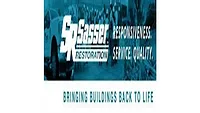IICRC Continues Posting Gains and Growth

IICRC certification continues to grow and gain recognition within the cleaning & restoration industry, the property insurance industry and with the general public.
State legislatures are recognizing IICRC Standards in water restoration and mold remediation, the first being Kentucky. The Kentucky General Assembly enacted HB44. The new law requires that the office of Attorney General, in consultation with the Department of Public Health and the Division for Air Quality, set standards for mold remediation companies that operate in the Commonwealth. HB 44 requires that standards be based on: “the five (5) general principles of mold remediation created by the Institute of Inspection, Cleaning and Restoration Certification (IICRC) (ANSI/IICRC Standard S520)…”
In other IICRC Standards news, the revision of the S100 Standard and Reference Guide for Professional Carpet Cleaning is in the final stages of development and is expected to be published by year end. The IICRC S600 standard for carpet installation continues to move forward through the development and consensus process. As of this writing, no firm publication date has been projected.
In an effort to continually update and document the details of the ANSI/IICRC Standards like the S500 and S520, the IICRC Board of Directors has passed a resolution to support various scientific research projects. The first project being proposed is designed to gain technical information regarding the efficiency of AFDs (Air Filtration Devices) as a particulate collection device as provided for in S500 in section 12.1.20. This project is planned as a collaborative effort between multiple entities, including the IICRC. It is hoped that additional research projects will follow.
In response to comments and concerns voiced by registrants taking certification exams, the IICRC administrative offices have added additional staff and new character recognition technology to the exam grading and data entry process. The goal here is to continually improve the processing and shorten the time needed to get exam results back to students following their application. The first phase of this upgrade is showing exam processing time shorted by more than a week, with more improvements expected as the rest of the upgrades are phased in. With more than 2,500 certification exams being processed each month, IICRC staff continues to strive for quick turnaround time without sacrificing accuracy and detail.
Additionally, in response to registrants’ requests, new IICRC Certified Registrant ID cards now contain a bar code that can be read by scanners located at the IICRC booth at various conventions, meetings and conferences. This scanner/barcode combination will make it faster and easier for convention and conference attendees to register their attendance for IICRC continuing education credits.
A new card is issued with every new certification and every annual certification renewal, so in a matter of months all registrants will have cards with the bar codes. When attending a convention or workshop where IICRC is exhibiting, simply drop by the IICRC booth and scan your card. The data will be forwarded to the IICRC office, and appropriate CEC credits awarded right after the event concludes.
The next scheduled meeting of the IICRC Certification Council and Board of Directors is scheduled for Oct. 2-4 in Las Vegas immediately following the Connections Convention.
As always, we appreciate our registrants’ support and feedback as we work to make the IICRC a better organization.
Looking for a reprint of this article?
From high-res PDFs to custom plaques, order your copy today!






